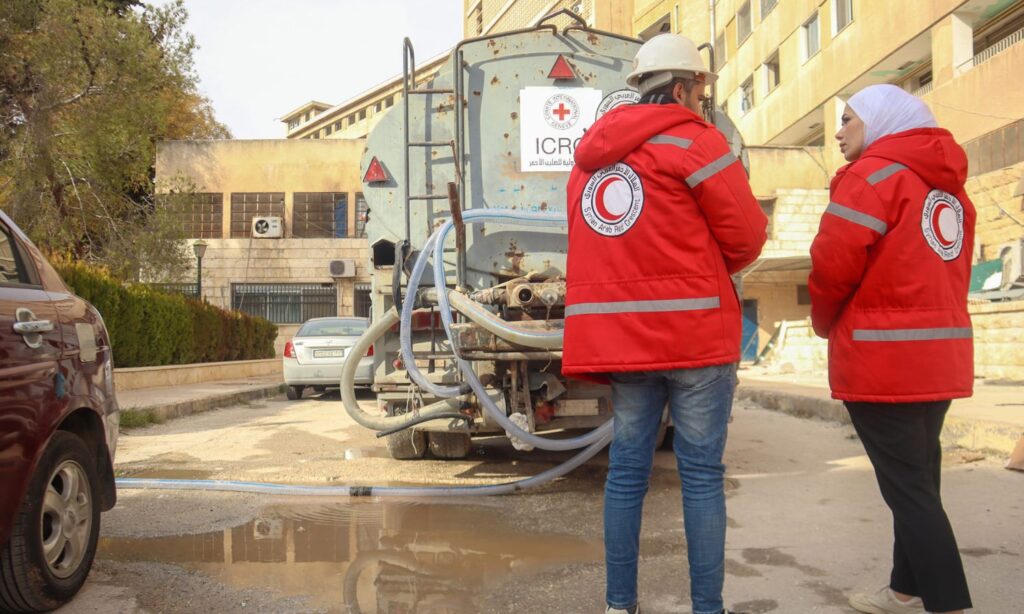The Syrian caretaker government’s presidency issued a decision appointing Mohammad Hazem Baqlah as the new director of the Syrian Arab Red Crescent (SARC), replacing Khaled Hboubati, who has held the position since 2016.
The decision issued by the government today, Thursday, December 19, terminates the previous decision appointing Hboubati as president of the Syrian Red Crescent, in accordance with the request submitted by the concerned party, received today, without providing additional details about the request.
In a separate decision, the government announced the appointment of Mohammad Hazem Mohammad Sharif Baqlah as the head of the organization.
Who is Mohammad Hazem Baqlah?
Before assuming the presidency of the Syrian Red Crescent, Mohammad Hazem Baqlah served as the director of volunteer medical services in the organization itself since 2008, and he has been the head of the health and clinic committee in the organization’s branch in Damascus since 2012.
Baqlah holds a degree in medicine from the University of Damascus, awarded in 1986, and he also holds a specialization certificate in ear, nose, and throat diseases and surgery. He worked as a doctor for ear, nose, and throat problems at the hospitals of the Ministry of Defense from 1990 to 1992.
A series of violations
Hboubati was first appointed president of the Syrian Red Crescent in December 2016 by a decision from former regime government head Imad Khamis, following an amendment to Article 20, which granted the prime minister the right to choose one of four candidates for the organization’s board of directors, even if that selection was outside of it.
Hboubati’s appointment as head of the organization came in place of Abdul Rahman al-Attar, who spent more than 25 years in the position, after receiving official orders to resign. Hboubati did not enjoy membership in the executive office or the board of directors of the organization, nor was he even one of its cadres, according to a report by the Pro Justice organization.
Since Hboubati took over the presidency of the Syrian Red Crescent in 2016, the organization has been directly linked to the regime, having lost any sign of independence after 2011, when the regime’s government froze the Red Crescent elections indefinitely, eliminating independent members of the administration and dismissing qualified staff, as reported by the American magazine Foreign Affairs in September 2018.
During his presidency, the organization contributed, according to the report, to indirectly supporting the regime by about $30 billion, part of which paid the salaries of its forces and intelligence agencies. The Red Crescent was utilized as an exclusive gateway to obtain aid funds, with the Ministry of Foreign Affairs requiring all relief agencies to sign an agreement with the Red Crescent as the official governmental partner.
As a reward for his support of the regime, Hboubati received a contract for the designation of the Khirbet Ghazala crossing in Daraa in 2017, and as compensation for the losses he incurred since the revolution began, as his trade in dried apricot products from Eastern Ghouta ceased, and his project “Casino Damascus” closed in 2011, according to a study published in early 2020 by the Middle East Directions Programme, overseen by the Robert Schuman Centre for Advanced Studies at the European University Institute.











